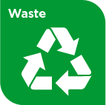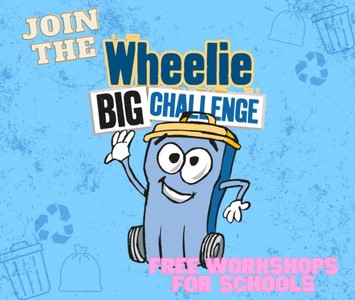Waste

We create more waste than ever before. Managing waste is important—but preventing it is even better. This is where resource efficiency comes in: using materials wisely and reducing their environmental impact.
What is Resource Efficiency?
It means using fewer resources and creating less waste. The waste hierarchy helps us do this:
Reduce → Reuse → Recycle
Reduce first – avoid creating waste
Reuse what you can
Recycle what you can’t reuse
Visit: www.recyclenow.com/ni for ideas
Key School Waste Areas
Most school waste is paper, card, and food. Tackling these makes a big impact.
Reduce Paper & Card Waste
-
Avoid printing unless needed
-
Use double-sided printing
-
Send documents digitally
-
Reduce font sizes & margins
Reduce Food Waste
-
Avoid individually wrapped food
-
Try Nude Food Days (no packaging)
-
Use reusable lunchboxes
-
Visit Love Food Hate Waste for tips
Reuse & Recycle
-
Reuse scrap paper or supplies
-
Recycle food waste with composting
-
Use recycling bins for paper, plastics, and more
-
Join Cash for Clobber to recycle clothes and raise money
Why Reducing Waste Matters
-
Less landfill and pollution
-
Lower costs for your school
-
Saves natural resources
-
Recycling uses less energy than making new products
-
Prevents harmful emissions from burning waste
In 2024, the UK produced 215 million tonnes of waste.
Recycling helps prevent waste from ending up in landfill or incinerators.
Waste at School
Every school produces waste—but by reducing and recycling:
-
You save money
-
You help the planet
-
You set a great example for your community
Check with your local council for recycling options, or visit recycling banks if pickup isn’t available.
Resources & Activities
Eco-Schools offer fun and practical activities for all Key Stages to help students reduce, reuse, and recycle.

